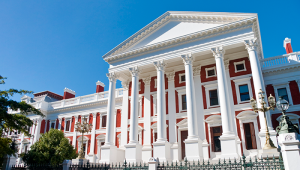The VAT increase was announced during the Treasury’s presentation of the country’s new budget, along with expenditure cuts over the next three years to fund inclusive growth and social spending.
Finance minister Malusi Gigaba, who had earlier warned the budget would “bear some pain”, said on Wednesday: “This is a tough but hopeful budget.
“We decided that increasing VAT was unavoidable if we are to maintain the integrity of our public finances.”
The South African VAT has not been changed since 1993.
The South African government, now under Cyril Ramaphosa who was sworn in last week, has pledged improved its efforts to plug a revenue hole in its budget and repair its economy after nine years under Jacob Zuma, who resigned as president earlier this months amid pressure from the ruling African National Congress.
To do so, some 85bn rand has been slashed from government spending over the next three years to stabilise debt and narrow the deficit.
Although the VAT hike might be seen as an unpopular and unexpected move, it will generate an additional 23bn rand ($2bn) of revenue in the 2018-19 year, Reuters reported.
The Treasury said on Wednesday that raising VAT was less harmful to economic growth than raising other taxes.
It also said the country faced a 48.2bn rand revenue gap in the current fiscal year ending in March, down from an earlier estimated 50.8bn rand.
The so-called sin tax on alcohol and tobacco also increased by between 6 and 10 percentage points.
The Treasury launched an online budget portal on Tuesday to make information more accessible for the public and improve citizen participation.
The budget also included spending on education, rising to 13.7% annually - the fastest growing spending category.
Over the next three years, the government will invest 32bn rand in building and upgrading schools as well as further investing in getting more pupils into schools, and providing water and sanitation to hundreds of schools.
Over the medium term, the National Health Insurance project will receive an additional 4.2bn rand funded through a reduction in tax benefits on medical expenses.







